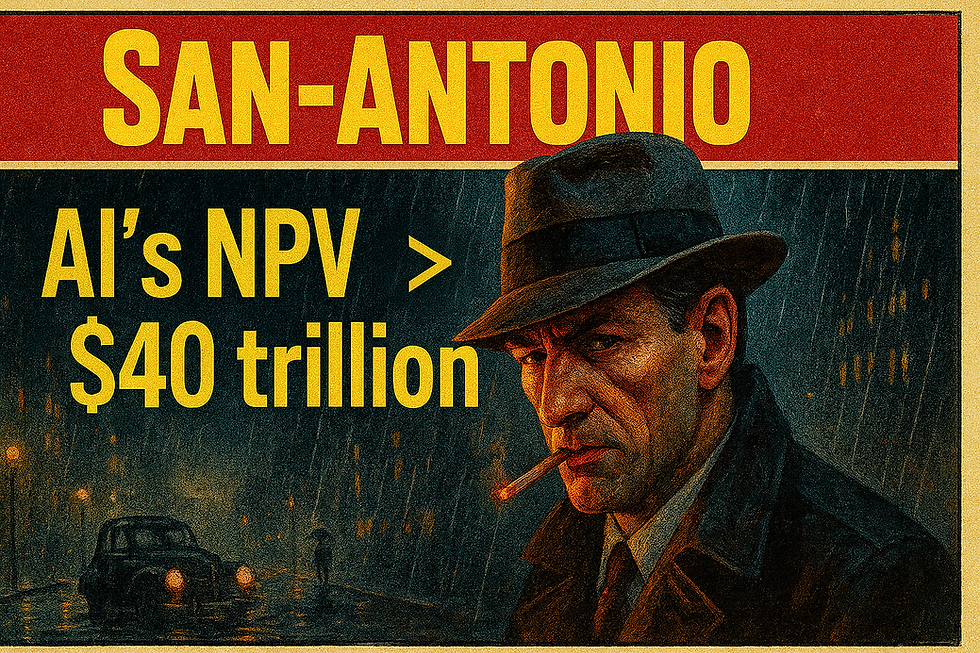The Versailles OS
- Laurent Bouvier

- Sep 14, 2025
- 4 min read
Kingship reached its apotheosis with Louis XIV and his absolutist reign, which lasted 72 years.
In 1661, after Cardinal Mazarin’s death, the king unexpectedly announced he would govern France himself. Over time, the Sun King developed a ‘patrimonial administration’: ‘The king’s rule over the country was nothing other than an extension of […] the prince’s rule over his household.’*
To do so, the king developed a highly sophisticated political operating system.
If royal rituals and ceremonies long predated the 17th century, Louis XIV raised them to a new level to project and exert power. Versailles, the king’s new HQ, became a bustling theater where courtiers incessantly vied for access, status, and prestige, engaging in games of court etiquette governed by intricate rules established by the king. As such, Versailles also served as a site for state surveillance.
‘Nobility’s need for distinction […] served the king’s need for power.’* In exchange for recognition, courtiers publicly offered performative consent, a scripted display of total allegiance, regardless of their private beliefs. The Duke of Saint-Simon remarked about flattery that ‘the coarsest was well-received.’ Ritual competence eclipsed intellectual competence. Worse, incompetence could be weaponized.
At Versailles, the king famously created elaborate ceremonies, such as his awakening and retiring, which he exploited to differentiate ranks, signal favors, and distribute honors in a publicized manner. Elias compared the court to a stock exchange where ‘the value of the people in each other’s opinion’* was constantly fluctuating as the king divided and ruled.
Decision-making was centralized in an intimate High Council composed of a few key ministers. It relied on a strong command-and-control organization. Placed in each province, powerful intendants represented the king, cutting across hierarchies. Louis XIV’s presence was felt across France at all times.
Jean-Baptiste Colbert, a minister, established the first state intelligence system. He also aimed to boost the economy by focusing on commerce. Through industrial policies, he promoted the growth of manufacturing and trade. However, 'technocratic delirium,' which some argue is at the origin of France’s malaise today, and overly protective tariffs led to mixed economic results and geopolitical tension.**
Le Tellier, another minister, and his son Louvois built a formidable royal army. Louis XIV sought glory for himself and France through wars to strengthen territorial security and integrity. It culminated in the War of the Spanish Succession, which ended with France exhausted and prestige dented.
On the judicial front, Louis XIV required the parlements to essentially rubber-stamp his laws in 1673. As a further demonstration of disdain for the judicial, executive orders known as ‘lettres de cachet’ bypassed ordinary courts, often to imprison individuals without appeal.
Relying on rituals, centralized decision-making, industrial policies, information control, wars, and legal exceptionalism, the Versailles operating system functioned as long as credit was available. Under Louis XVI, the fiscal and economic crisis of 1788, exacerbated by social inequality, evolved into a revolution.
Economic and financial underperformance is what breaks any operating system’s back. Even a royal one.
Sources:
* The Court Society’ by Norbert Elias, 1969
** Adam Smith, ‘The Wealth of Nations’ (1776), Chapter ‘Of Restraints upon the Importation from Foreign Countries’
‘A great part of the policy of Mr. Colbert, who, notwithstanding his great abilities, seems in this case to have been imposed upon by the sophistry of merchants and manufacturers, who are always demanding a monopoly against their countrymen. It is at present the opinion of the most intelligent men in France that his operations of this kind have not been beneficial to his country. That minister, by the tariff of 1667, imposed very high duties upon a great number of foreign manufactures. Upon his refusing to moderate them in favour of the Dutch, they in 1671 prohibited the importation of the wines, brandies, and manufactures of France. The war of 1672 seems to have been in part occasioned by this commercial dispute. The peace of Nimegen put an end to it in 1678 by moderating some of those duties in favour of the Dutch, who in consequence took off their prohibition. It was about the same time that the French and English began mutually to oppress each other’s industry by the like duties and prohibitions, of which the French, however, seem to have set the first example. The spirit of hostility which has subsisted between the two nations ever since has hitherto hindered them from being moderated on either side. In 1697 the English prohibited the importation of bonelace, the manufacture of Flanders. The government of that country, at that time under the dominion of Spain, prohibited in return the importation of English woollens. In 1700, the prohibition of importing bonelace into England was taken off upon condition that the importance of English woollens into Flanders should be put on the same footing as before.’




Comments